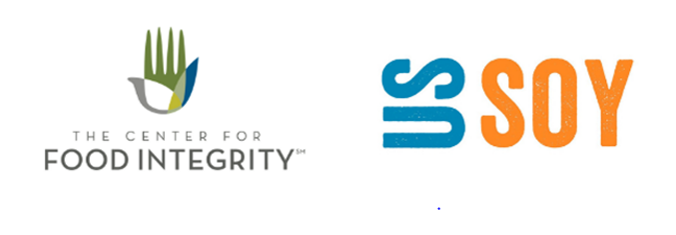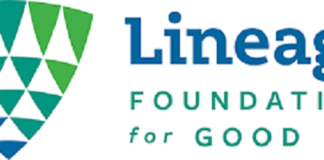
GLADSTONE, Mo. – Thursday, July 28, 2022 – The food system is moving in the right direction to become more sustainable, but one of the most significant questions to address is how the cost of new sustainability policies and practices will be funded. The issue was discussed during a recent roundtable meeting hosted by the United Soybean Board (USB) and The Center for Food Integrity (CFI). “The Price of Sustainability: Who Pays?” is part of a broader effort from USB and CFI to foster collaboration between U.S. Soy and the food industry.
The small group, that included food companies, soybean farmers and others, discussed efforts that are underway to make food production more sustainable and how the food system can collaborate to achieve its goals. Farmers and USB Directors Tim Bardole, Iowa, and Laurie Isley, Michigan, shared some of the sustainability practices they have undertaken on their farms, such as extensive soil testing, planting cover crops, strip tillage and drone scouting.
“We make these changes because they’re the right thing to do. We want to be sustainable because we want to have a long-term impact. We also need to continue to be profitable,” Isley said.
Those practices add expenses to growing a crop at a time when higher fuel and fertilizer prices are squeezing profit margins, she said.
“The crops growing right now are breakeven. If something doesn’t change it’s going to be difficult to maintain some of these practices,” Bardole said.
Food companies are looking at ways to involve the entire supply chain in the effort to improve sustainability. Justin Ransom, senior director of sustainable food strategy at Tyson Foods, said trust and transparency are essential for each member of the supply chain to feel comfortable sharing information in order to understand what processes are effective in each region or supply sector.
“Currently, we have very limited transparency within the industry,” Ransom said. “How do we begin to create transparency in the supply chain, so we can say that we’re raising our birds, cattle or hogs with grain that came from the most sustainable production practices and tie it all the way to the consumer?”
“A communication gulf exists between consumers and farmers,” said Hansel New, director of sustainability programs, Dairy Farmers of America. The Cooperative has launched a campaign featuring the “DFA Nerd Herd” to tell the story of dairy farmers and others who are making sustainability happen. New said the food system needs to more clearly understand the resources farmers need to achieve goals – including financial, technical and human resources.
“Farmers can’t reasonably be expected to take on that full cost burden,” said New. “We also know that consumers can’t take on that full cost burden, particularly vulnerable consumers who are already struggling with rising food costs. There needs to be a third way.”
Markets are changing and the food system needs to be more transparent and traceable, said Jason Clay, senior vice president of markets for World Wildlife Fund. In addition to sharing information about practices and results, those in the food system need to share experiences about the business case for sustainability and how to adapt lessons for themselves. The issue is how to think, not what to think. Adaptation is the name of the game.
“We need to look at the business model in a different way where we don’t have winners and losers, but we have partners along the entire value chain to make them more resilient—everyone wins,” Clay said. “Global food supply chains are probably the most inequitable institutions on the planet because the producers have no control.”
Sustainability issues will continue to evolve, but the key, according to Isley, is understanding that there’s not a one-size-fits-all approach.
“What works for me in Michigan may not work in California. It may not work 10 miles from me,” she said. “Regardless, sustainability must be profitable for farmers so we can continue produce and allow the family farm legacy to continue.”
About United Soybean Board: United Soybean Board’s 78 volunteer farmer-leaders work on behalf of all U.S. soybean farmers to achieve maximum value for their soy checkoff investments. These volunteers create value by investing in research, education and promotion with the vision to deliver sustainable soy solutions to every life, every day across the three priority areas of Infrastructure & Connectivity, Health & Nutrition, and Innovation & Technology. As stipulated in the federal Soybean Promotion, Research and Consumer Information Act, the USDA Agricultural Marketing Service has oversight responsibilities for USB and the soy checkoff. For more information on the United Soybean Board, visit unitedsoybean.org.
About The Center for Food Integrity The Center for Food Integrity is a not-for-profit organization that helps today’s food system earn consumer trust. Our members and project partners are committed to providing accurate information and working together to address important issues in food and agriculture. The Center does not lobby or advocate for individual companies or brands. For more information, visit www.foodintegrity.org.








